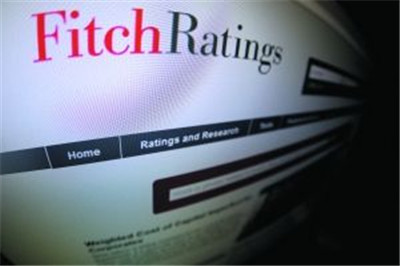(单词翻译:单击)
Fitch has slashed Japan’s sovereign rating from A plus to A, judging the world’s fourth-largest economy a worse credit risk than Malta or Estonia.
惠誉(Fitch)将日本的主权信用评级从“A+”下调至“A”,认为全球第四大经济体的信用风险比马耳他或爱沙尼亚更糟糕。
The credit rating agency said it acted because the government of Shinzo Abe did not offset the lost revenue from last year’s delay in raising consumption tax.
这家信用评级机构表示,之所以采取此举,是因为安倍晋三(Shinzo Abe)政府没有弥补因去年暂缓提高消费税带来的财政收入损失。

The downgrade is unlikely to have much immediate effect — domestic confidence in Japan’s public debt has survived bigger shocks — but it highlights a steady deterioration in the country’s public finances at a time when the central bank has embarked on an unprecedented Y80tn ($670bn) a year bond-buying programme.
降级不太可能立即产生太大影响(日本国内对本国公债的信心经受过更大冲击),但此举凸显日本公共财政状况持续恶化,而眼下日本央行正推行史无前例的每年80万亿日元(合6700亿美元)债券购买计划。
An A is the sixth notch on Fitch’s rating scale. That puts it one notch below Moody’s, which downgraded Japan late last year, and two notches below Standard & Poor’s.
A是惠誉评级尺度上的第六级,比穆迪(Moody's)去年末对日本下调后的评级还要低一级,比标准普尔(Standard & Poor’s)的评级低两级。
“Japan’s main sovereign credit and rating weakness is the high and rising level of government debt,” said the agency. “Fitch projects the gross general government debt-to-GDP [gross domestic product] ratio to rise to 244 per cent of GDP by end-2015, by far the highest ratio of any rated sovereign.”
惠誉表示:“日本的主权信用与评级的主要弱点是政府债务水平过高且在不断增加。惠誉预计到2015年底,日本政府债务总额与国内生产总值(GDP)之比将升至244%,这将是受到评级的所有主权发债人中遥遥领先的最高比率。”
Japan’s public debt has increased rapidly over the past 20 years as social security spending rose, tax revenues stagnated and successive governments used fiscal stimulus to try and revive growth.
过去20年日本公债增长迅速,原因是社保支出上升,税收收入停滞,而且历届政府试图用财政刺激恢复增长。
The government has been able to draw on a large pool of domestic savings, however, financing itself at extremely low interest rates. That means it has never come close to a debt crisis despite repeated predictions.
然而,日本政府一直能够利用国内庞大的储蓄资金池,以极低的利率为自己融资。这意味着日本从未接近过债务危机,尽管这方面的预测出现过多次。
Andrew Colquhoun, head of Asia-Pacific sovereigns at Fitch, said the rating reflected the extremes of Japan’s position: weak public finances and economic growth combined with a strong polity and little external debt.
惠誉亚太区主权评级主管高瀚德(Andrew Colquhoun)表示,这个评级反映出日本地位的一些极端:公共财政和经济增长疲软,但政体强大,外债很少。
“The Japanese sovereign’s exceptionally strong financing flexibility supports the ratings, despite weaknesses and vulnerabilities elsewhere in the public finances,” said Fitch.
惠誉表示:“日本主权异常强大的融资灵活性支持了对其信用的评级,尽管公共财政其他方面存在弱点和脆弱性。”
“Sovereign funding flexibility rests mainly on the massive stock of savings of the Japanese private sector and the strong ‘home bias’ with which these savings are invested.”
“主权融资的灵活性主要依靠日本私人部门的大量储蓄,以及这些储蓄在投资目的地上的强烈‘本土偏向’。”
Mr Colquhoun said Fitch will be looking at a government fiscal consolidation strategy, due this summer, to see whether it puts debt-to-GDP ratios on a downward path.
高瀚德表示,惠誉将关注日本政府定于今夏公布的财政整顿策略,看它能否让债务与GDP之比进入下行轨道。
As important as the strategy itself, he said, will be the government’s commitment to implementing it. Any further delay in raising consumption tax, from 8 to 10 per cent, now scheduled for April 2017, would be a negative.
高瀚德说,与该策略本身一样重要的将是政府推行策略的承诺。日本政府目前定于2017年4月把消费税从8%调高至10%,进一步拖延将产生消极影响。


